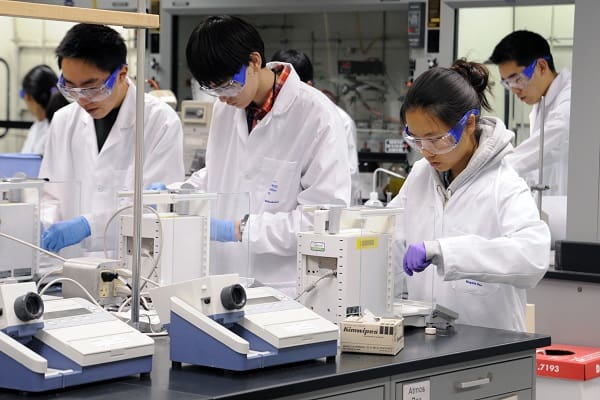

Synthetically-derived cannabinoids are the future.
That’s according to a new report on the cannabis industry which says that in-the-field crop production will soon be disrupted by lab-based chemical and biosynthetic methods of producing cannabis compounds like THC and CBD.
The report from Calgary-based investment bankers AltaCorp Capital argues that the demand for cannabis extracts —either for the edibles and beverage market or for pharma applications— will continue to grow as the industry matures, meaning that a premium will be put on production methods that emphasize quality, consistency of product and cost-effectiveness, all of which point towards chemical synthesis and biosynthesis as the way of the future.
“With the expected shift in consumer preferences for derivative cannabis product formats, and the applications for cannabinoids in the pharmaceutical space, the demand for cannabinoid extracts and isolates is expected to grow exponentially in the coming years. We see the immense potential for chemical synthetic and biosynthetic production methods to be a disruptive force the supply chain for cannabinoids,” said analyst David Kideckel in the report, which was issued Wednesday.
And while plant-based extraction of THC and CBD has so far been the focus of the majority of cannabis companies, some are investing in R&D to arrive at scalable, synthetic production methods, which would remove the need for the massive greenhouses currently being constructed across Canada and the United States.
Still, to become a reality, Kideckel contends that chemical and biosynthetic methods are just around the corner and that both the beverage and pharma industries are likely to be favourable to synthetic over plant-based production due to the repeatability and consistency involved in synthetic production.
“We see this aspect of synthetically-derived cannabinoids as being an attractive feature for CPG companies who may eventually look to enter the cannabis space with infused products, such as The Coca Cola Company, Diageo and Pepsi Co, who, in our view, are likely to value a lack of variability in cannabinoid production to ensure the highest levels of consistency in all products sold, as well as superior scalability in the manufacturing processes,” the analyst says.
At the same time, Kideckel argues there will always be a place for plant-derived pot products, in part due to customer demand for “naturally sourced” cannabis products but also due to the relatively low capital investment needed for extraction operations.
“We do not see synthetic production as a replacement for plant-based extraction, but rather, a process that can be used to augment the production of cannabinoids for certain types of products which are suited for the methodology. With the expected explosion in demand for cannabis extracts and isolated cannabinoids, we see both methodologies occupying an important place in the industry’s supply chain,” Kideckel adds.
Leave a Reply
You must be logged in to post a comment.



 Share
Share Tweet
Tweet Share
Share




Comment